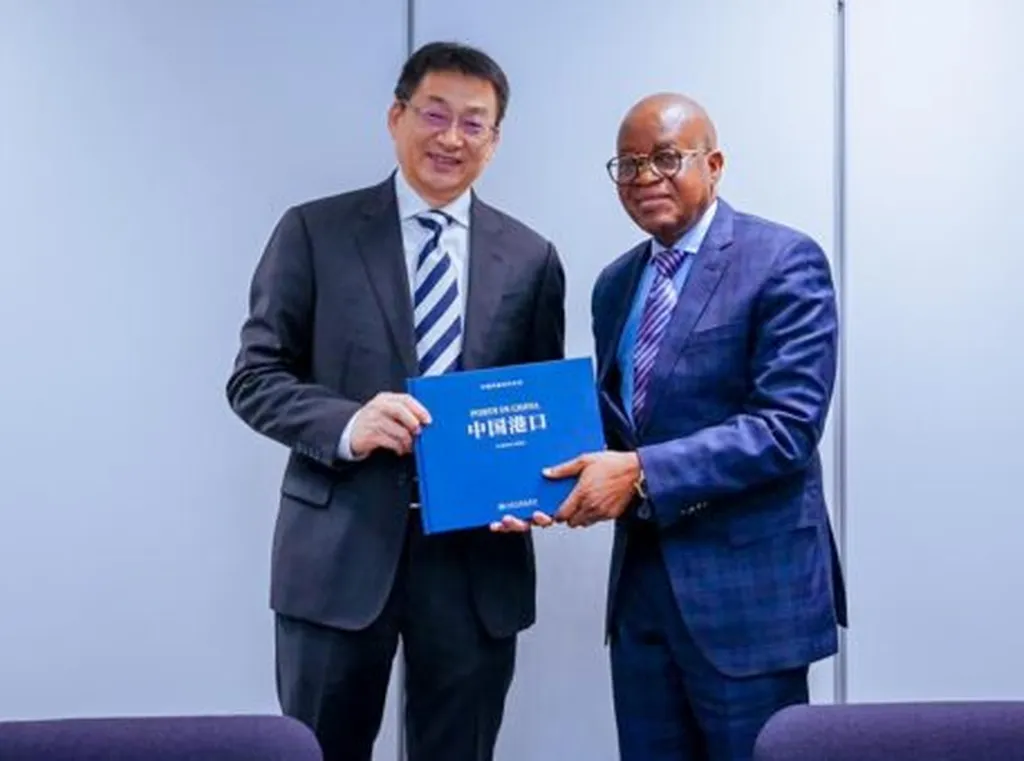China’s Vice Minister of Transport, Mr Li Yang, has pledged robust technical and diplomatic backing for Nigeria’s drive to modernise and automate its seaports, underscoring a burgeoning partnership between the two nations in the maritime sector. The commitment was made during a bilateral meeting with Nigeria’s Minister of Marine and Blue Economy, Dr Adegboyega Oyetola, on the sidelines of maritime engagements in London.
Yang lauded President Bola Ahmed Tinubu for establishing the Ministry of Marine and Blue Economy as a fully dedicated ministry, calling it a “transformative step for Nigeria’s maritime future.” He highlighted China’s expertise, noting that the country operates 52 fully automated ports—among the highest globally—and possesses the capacity and technological prowess to support Nigeria’s transition from manual and semi-automated systems to a fully digitalised port environment.
China’s automated ports have significantly enhanced trade efficiency, reduced vessel turnaround times, bolstered security through smart surveillance, and minimised human error using integrated digital platforms. Yang suggested that a similar approach, tailored to Nigeria’s specific needs, could unlock new levels of competitiveness for Africa’s largest economy.
Yang announced China’s readiness to assist Nigeria in deploying smart port infrastructure, cargo-handling automation, digital gate systems, electronic customs processes, and advanced maritime communication technologies. He commended the longstanding relationship between the two nations, noting that Nigeria has remained one of China’s strongest partners in Africa.
Beyond technical support, Yang revealed China’s willingness to extend maritime education and capacity-building opportunities to young Nigerians. This includes scholarships under China’s specialised maritime training scheme and participation in the Global Innovation in Transport Programme—a four-week intensive training programme designed to equip participants with cutting-edge industry knowledge. He also invited Dr Oyetola to China’s Sustainable Transport Summit scheduled for next year and revealed that a draft Memorandum of Understanding is being prepared to strengthen bilateral maritime cooperation.
In response, Nigeria’s Minister of Marine and Blue Economy expressed deep appreciation for China’s continued partnership and its pledge to back Nigeria’s IMO Council bid. Oyetola highlighted Nigeria’s desire to deepen technical collaboration with China in several strategic areas, including port digitalisation, maritime safety, shipbuilding and ship repair capacity, inland waterways development, seafarer training, blue economy investments, and maritime environmental protection.
Oyetola sought China’s support in combating Illegal, Unreported and Unregulated (IUU) fishing through modern monitoring technologies, satellite-based tracking systems, and joint enforcement initiatives.
This partnership could be a game-changer for Nigeria’s maritime sector. With China’s backing, Nigeria could leapfrog traditional challenges and fast-track its transition to a fully digitalised, efficient, and secure port environment. The exchange of knowledge, technology, and expertise could also foster innovation and capacity-building, ensuring that Nigeria’s maritime workforce is equipped to manage and maintain advanced systems.
Moreover, this collaboration could set a precedent for other African nations looking to modernise their maritime infrastructure. As Africa’s largest economy, Nigeria’s success in this endeavour could inspire regional cooperation and collective progress towards a more integrated and competitive maritime industry.
The potential impact on trade and economic growth is substantial. Efficient ports reduce turnaround times, lower operational costs, and enhance trade flows, which could boost Nigeria’s competitiveness on the global stage. Additionally, the focus on maritime safety, environmental protection, and sustainable practices aligns with global trends and could position Nigeria as a leader in responsible maritime development.
As the two nations move forward with this partnership, the maritime world will be watching closely. The success of this collaboration could redefine maritime alliances and set new benchmarks for technological advancement and sustainable practices in the sector.

